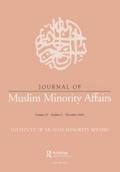
Abstract
The rise to power of the socially conservative Justice and Development Party (AKP) in 2002 seemed to mark a shift in religion–state relations in Turkey, away from a Kemalist agenda of laiklik. This paper seeks to analyze to what extent do the socially conservative AKP’s policies toward religion constitute a shift away from those of the Kemalist Republican People’s Party (CHP)? The findings of this analysis reveal how unifying notions of Islam, employed by both the CHP and the AKP, often undermine meaningful differences, whether they are ethnic, linguistic, or religious. An examination of the transcripts of the Parliamentary debates on the Alevi matter from 2002 to 2012 reveals that the AKP is markedly similar to Kemalists in its approach to religion–state relations. Like the CHP, the AKP privileges a totalizing interpretation of Islam in order to promote national unity, but as this paper argues, it does so at the expense of nonconforming religious communities.